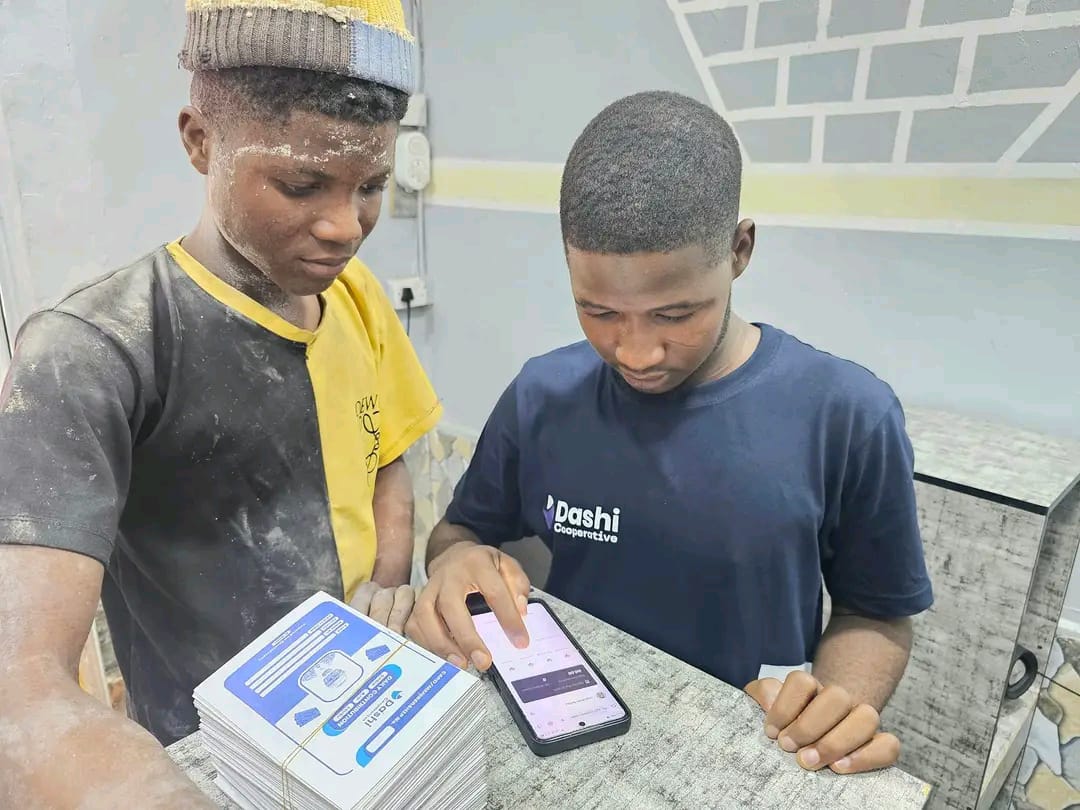In 2018, fresh out of NYSC, Ibrahim Zubairu set up a point-of-sale (POS) terminal in the bustling Mile 12 market in Lagos. His father had been one of the pioneer yam traders in the market and was highly regarded by the traders. As a result, Zubairu enjoyed large patronage from the market traders, many of whom entrusted their savings to him. To manage the increasing inflow of deposits, he created a traditional system called “adashi,” involving daily contributions from traders. For instance, a N500 contribution throughout a month totalling N15,500 would incur an N500 fee for operational charges.
“We were able to empower over 6,000 individuals and teams of up to 40 people through this circle-based system,” he said.
By 2019, Zubairu’s initiative had managed around N36 million in trader savings, but the problems of stolen cards and manipulated finance records were posing a threat. Amid these growing challenges, savings slumped. Faith in the Adashi system waned. Zubairu, a computer science graduate, with his co-founders Ganiu Odeyinka and Abayomi Ajao, moved the cash-based system into a digital scheme, later renamed Dashi Digital Cooperative in 2023.
The new savings model prioritizes security and convenience in such a way that savers receive instant SMS notifications upon every deposit or withdrawal. To allay fear and doubt, the new transparency also ensures that they can keep track of their transactions using their mobile phones. To handle registrations and huge inflows, the cooperative depended on a squad of agents, much like bank branches.
“With Dashi, you save through agents, just like traditional collectors, but with enhanced security. This system breathes new life into traditional savings clubs like Ajo, Esusu, or whatever you call them,” Zubairu explained.
According to Zubairu, Dashi simplifies the saving process using a user-friendly phone app to enable users to save money on the go for their lifetime ambitions. The cooperative has physical outlets in major Nigerian cities, including Lagos and Kano.
In 2023, Dashi introduced a unique commodity savings plan for Muslim traders to save collectively for a ram for Eid-al-Adha, a prominent Islamic festival marked by animal sacrifice. Starting with 11 customers in 2023, the scheme broadened to 97 savers by 2024, each saving N300,000.
Zubairu maintained that the aim of this scheme is to bypass the pressures of inflation and facilitate a smooth purchase process through small, regular commodity savings.
While acknowledging a service fee for ram purchases, Zubairu didn’t disclose the specific amount. The fee, which adheres to Sharia principles (Islamic law), emphasized ethics and ensured stability in the system, Zubairu explained. He referred to it as a complimentary service for users who save money with them.
Yet he said that he was working with a team to craft a sustainable business model that benefited everyone.
He admitted that Dashi’s growth had been challenging, starting from brainstorming the idea to finding the ideal team. Navigating partnerships and regulatory landscapes, Dashi continues to grow amid the odds, envisioning partnerships that would create interest-free loans for its savers.
“We once distributed N4.1 million to small businesses with excellent returns and profit-sharing,” Zubairu said.
With a user base of 6,000 members, mostly Nigerian traders concentrated in Lagos, Nigeria’s commercial hub, Dashi’s mission to empower local communities with adequate financial tools remains steadfast. “Our goal is to scale gradually across Nigeria, ensuring slow and steady growth,” Zubairu stated.
In 2018, Ibrahim Zubairu set up a point-of-sale terminal in Lagos's Mile 12 market, leveraging his father’s reputation among traders. He introduced "adashi," a traditional saving system, enabling over 6,000 participants to save collectively. By 2019, the system faced security challenges, leading Zubairu and his partners to digitize it into Dashi Digital Cooperative in 2023, enhancing security and transparency through mobile-based tracking and agent-assisted transactions.
Dashi's user-friendly app and physical outlets simplify the saving process across major Nigerian cities. In 2023, a commodity savings plan for Eid-al-Adha enabled Muslim traders to save for a ram, expanding from 11 to 97 savers by 2024. Zubairu aims to combat inflationary pressures with ethical, Sharia-compliant services and seeks a sustainable business model offering interest-free loans.
Dashi has successfully distributed N4.1 million to small businesses and serves primarily Lagos-based Nigerian traders. With 6,000 members, the cooperative focuses on empowering local communities with financial tools, gradually scaling across Nigeria for steady growth.






